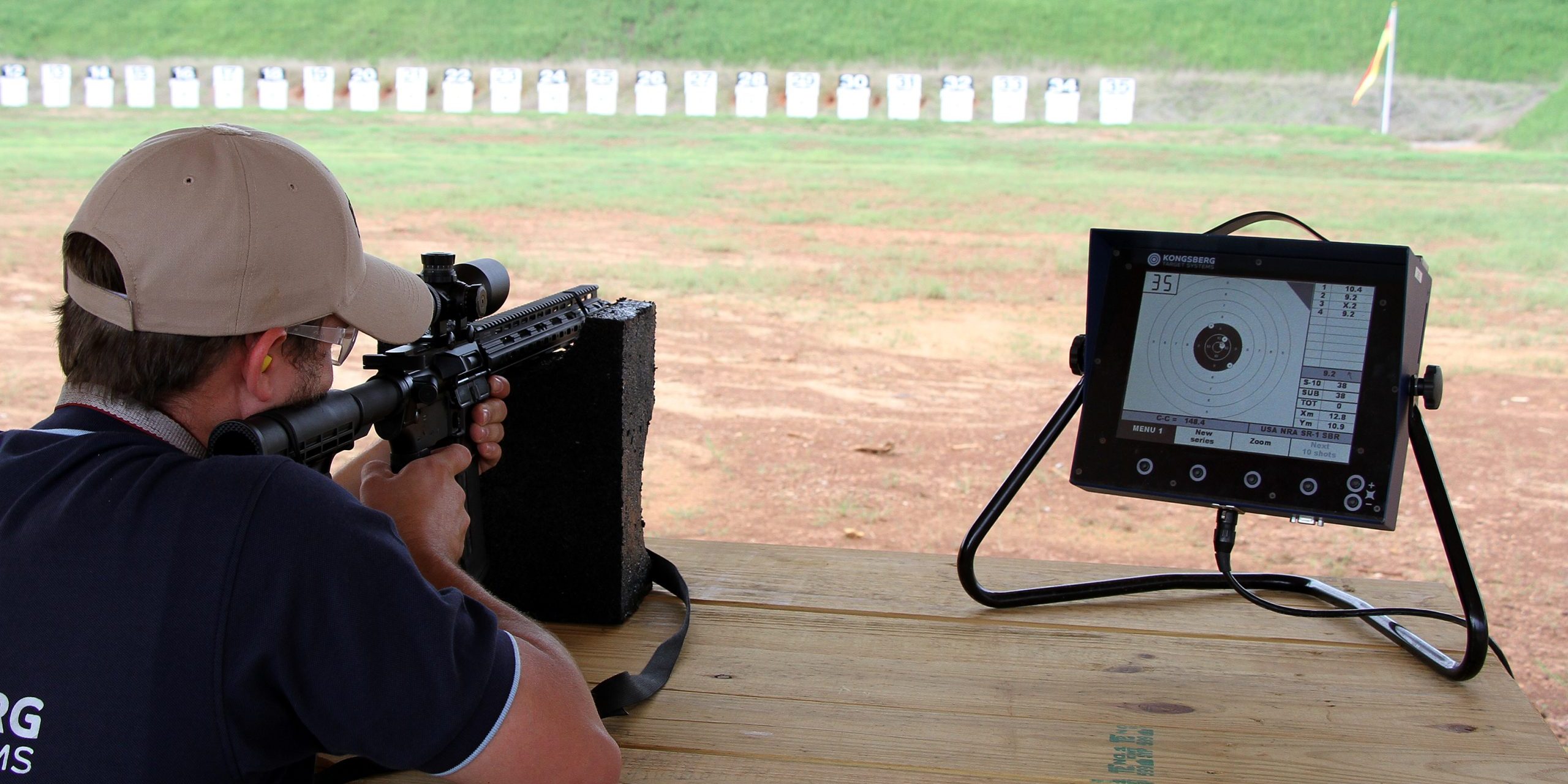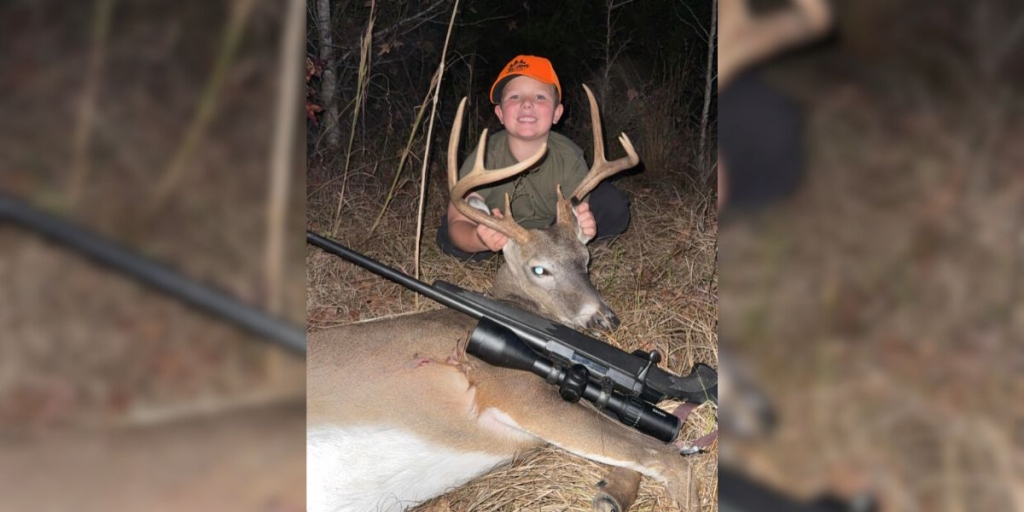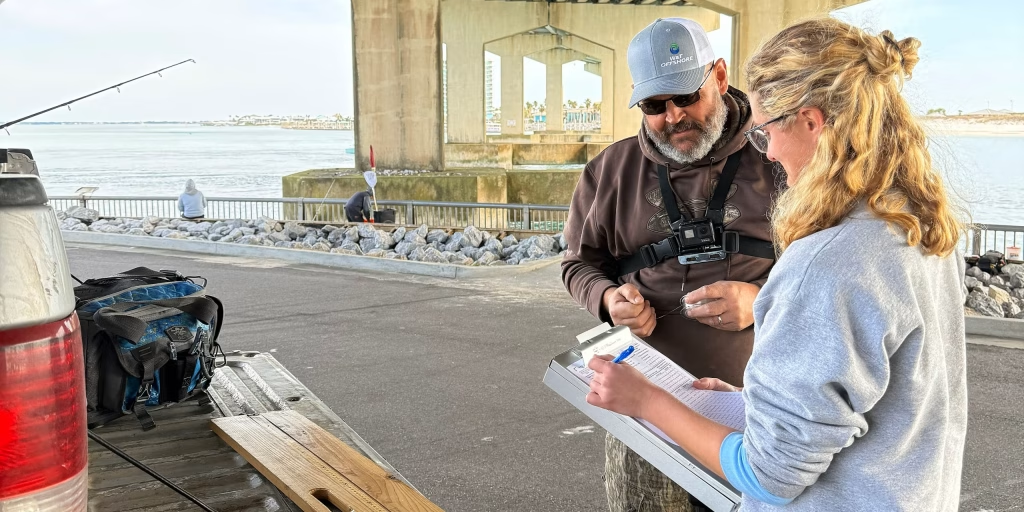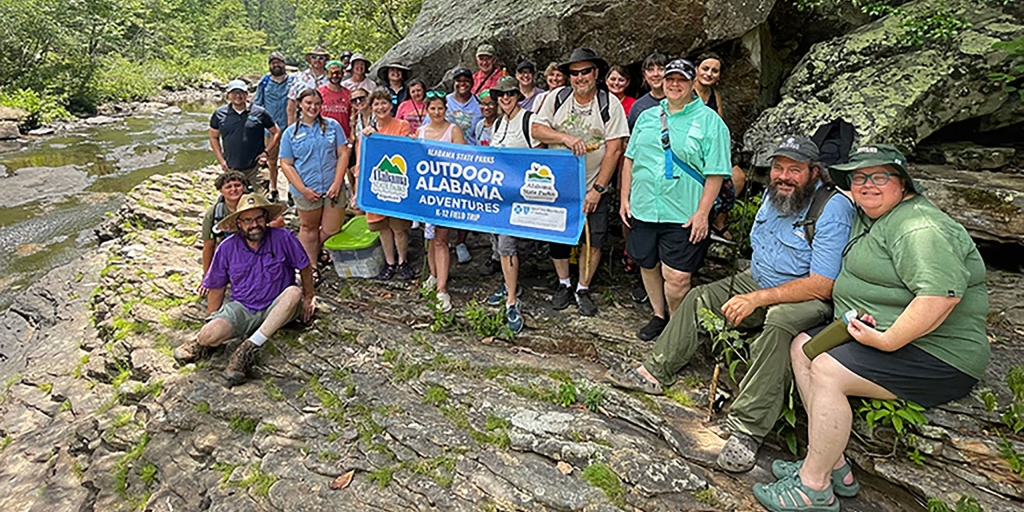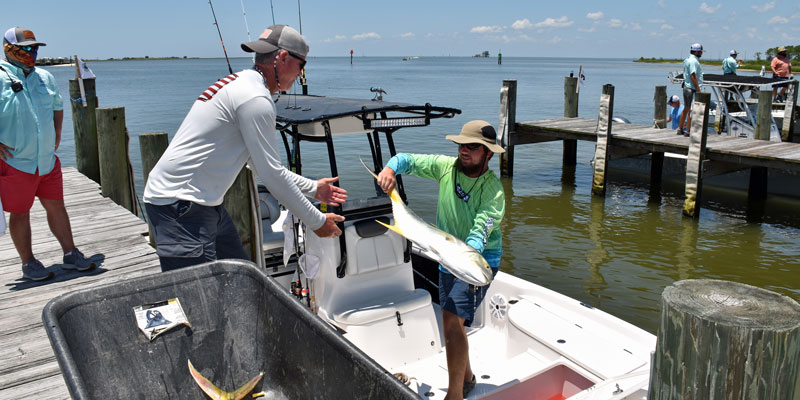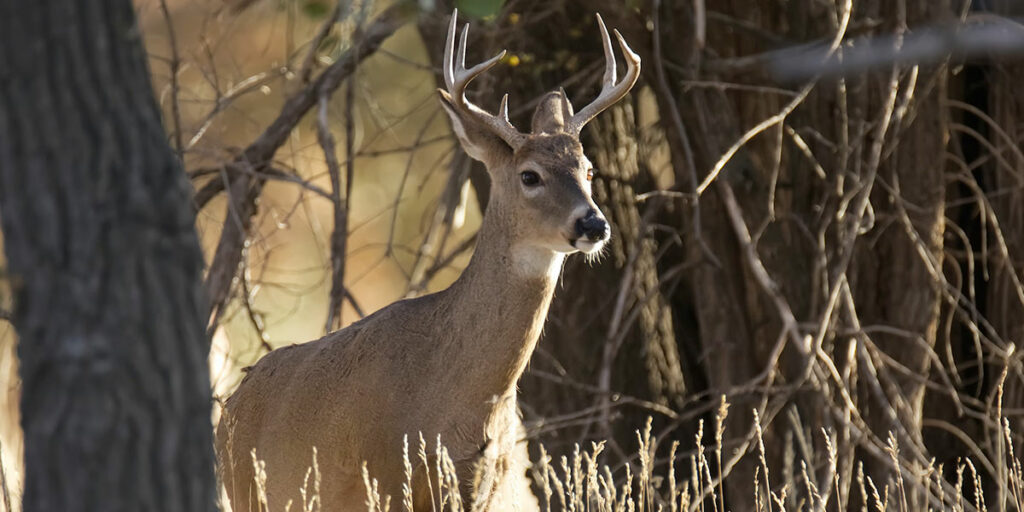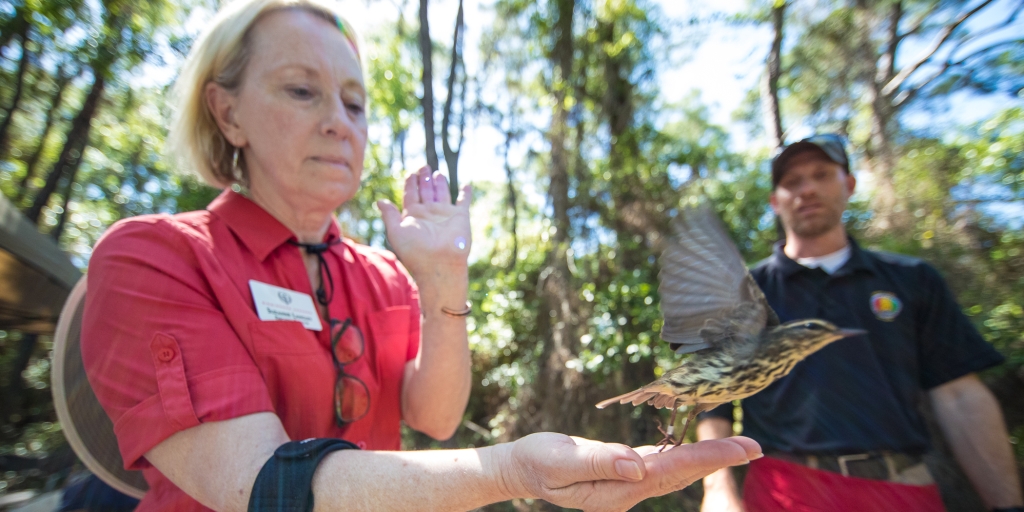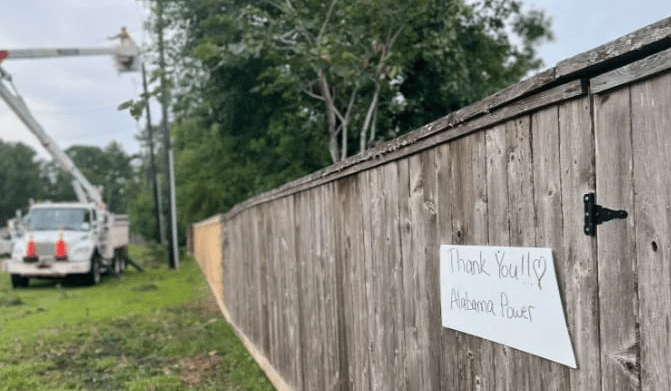Fortunately, the number of people in Alabama who participate in the traditional outdoor endeavors of hunting and fishing has remained relatively steady, but one activity is on an upward trajectory – shooting sports.
That fact has definitely been noticed by the Alabama Department of Conservation and Natural Resources’ (ADCNR) Wildlife and Freshwater Fisheries (WFF) Division, which is in the process of adding a state-of-the-art shooting facility in Shelby County to complement the 12 existing shooting ranges they operate.
ADCNR completed the purchase of 1,842 acres on Highway 25 near Columbiana this year to add to the 195 acres already secured, and the new shooting range is in the design phase right now, according to Michael Bloxom, WFF’s Hunter Education Coordinator.
“All of the environmental impact studies and cultural resource studies have been approved, and the money from the U.S. Fish and Wildlife Service (USFWS) has been approved,” Bloxom said. “We have an engineering firm doing a topographic study to determine the best layout for our ranges.”

Bloxom said the Shelby facility will have a 300-yard rifle range, a 100-yard rifle range, 50- and 25-yard pistol ranges, an archery range and shotgun ranges for trap, skeet and five-stand.
“We’re redoing the buildings there so we will have a full classroom,” he said. “It will be ADA (Americans with Disabilities Act) compliant. We will have hunter education classes, Department training classes and the Hunting 101 and Shooting 101 workshops. We’re doing a traffic study to make improvements to access the property.”
With all the work scheduled to be done, Bloxom estimated that it will take two years to open at least a portion of the facility to the public.
“We’ll put the archery range in first while we continue to work on the shooting ranges and improvements to the buildings,” he said. “With our budget, we’re going to be able to make it state-of-the-art with electronic targets similar to what is found on the most advanced ranges in the nation. That means with the 300-yard rifle range, you won’t have to go downrange to change paper targets. You will have a computer screen at your bench that will show where your shots are landing in real time.
“Some of the pistol ranges will be set up for match shooting for some of these organizations that hold competitions. We’re looking at drawing people from all over the country to our range. It’s going to be a great asset for the community and the state but also attract attention nationwide with the quality of the facilities. It will open up economic opportunities outside of the Department of Conservation itself. The range will also provide a number of employment opportunities for those in the area as well, making this a very community involved resource.”
The new Shelby range will be a very large range with something to offer every shooter. Bloxom said WFF will use some of the acreage as buffer zones and may use some areas for a Special Opportunity Area (SOA).
Bloxom said the proximity to the Birmingham metro area should provide easy access for a large segment of the state’s population and take some pressure off the Cahaba Wildlife Management Area (WMA) Shooting Range.
A change in the way the USFWS apportions funds from the excise tax on firearms and ammunition from the Pittman-Robertson Act is one of the reasons for the significant budget allotted for the Shelby range. Another $2.5 million has been allocated for improvements at the Etowah Public Shooting Range near Gadsden.
“Normally with the Fish and Wildlife Service, we get three-to-one matches on all our wildlife projects and hunter education programs,” Bloxom said. “There has been such an increase in firearms and ammo sales over the past several years that they’ve had more money than most of the state agencies have money for the matching funds.”
Traditionally, hunters were the primary sources of funding for these projects. Now, non-hunters who enjoy shooting sports have become a huge segment of the public purchasing the guns and ammo and paying the 11% excise tax. Thanks to the Target Practice and Marksmanship Training Support Act passed by Congress, federal money can be used for up to 90% of the cost of target range construction or expansion.
“Now we’re able to put up 10% of the cost for range construction, refurbishment and improvements,” Bloxom said. “For years, all of our shooting ranges have been out in the country on WMAs. Now we have Swan Creek (WMA Shooting Range) and Cahaba staffed full time with range safety officers. Those ranges are family friendly, clean and safe. The Shelby range will be staffed, and all of our future range construction will also have staffing.
“A lot of the funding is coming from shooters, not just hunters. Glock is one of the largest contributors to the Pittman-Robertson funds, but after 28 years as a game warden, I’ve never checked anyone hunting with a Glock. There are just not enough opportunities for people to enjoy the shooting sports.”
That is the point that Justin Grider, WFF’s R3 Coordinator, made at the recent National R3 Symposium in Mobile. R3 relates to the recruitment, retention and reactivation of individuals involved in outdoor recreational activities.
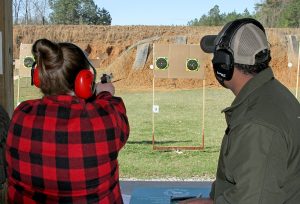
“The reasoning for the presentation was to highlight the importance of access as it relates to R3 and participation,” Grider said. “That was in reference to the shooting sports, hunting, trapping and fishing. We wanted to make the point that regardless of what you’re doing, you have to have access as one of the critical components for people to be able to participate in these outdoor recreation pursuits.
“I used research done by Responsive Management and the National Shooting Sports Foundation related specifically to shooting, and it alluded to folks being in support of having more places to shoot so they could shoot more often. This data is important to agencies when it comes to allocating resources for on-the-ground access.”
Grider also cited a study done by Responsive Management and SEAFWA (Southeastern Association of Fish and Wildlife Agencies) that surveyed non-hunting firearms owners and target shooters for public perceptions on the use of Pittman-Robertson funds.
“A lot of them had no idea that their firearms and ammo purchases and the excise tax was used for conservation funding, but they were overwhelmingly in support of that money being used in conservation and for building public shooting ranges,” he said. “So, we have research that says people would shoot more if they had more places to go. We also have regional research that says people are in support of building ranges and are excited their excise taxes are going to conservation. We have state-specific research that implies people are purchasing licenses so they can use our public shooting ranges.
“Some states have not bought into making access easier for their constituents, but that is not the case in Alabama. I’m really proud of the work that Wildlife and Freshwater Fisheries has done in partnership with NWTF (National Wild Turkey Federation), State Lands with Forever Wild, and The Nature Conservancy. This has allowed us to open up thousands of acres over the past several years to hunting and outdoor recreation opportunities. And hats off to our Law Enforcement Section for improving existing ranges and building new, state-of-the-art ranges that will be onboard in the next couple of years. The Section Chief (Michael Weathers), Director (Chuck Sykes) and Commissioner (Chris Blankenship) have prioritized those things for our constituents and citizens.”
Grider said the new Shelby range should have a significant impact on Alabama for a variety of reasons.
“It’s so important that folks who are already involved in these outdoor recreation activities continue to participate and that they have places to go and enjoy the outdoors,” he said. “It’s the utmost priority for our agency. We have abundant natural resources. We’re really blessed to live in a beautiful state. It’s important to provide opportunities for people to enjoy those resources.”




